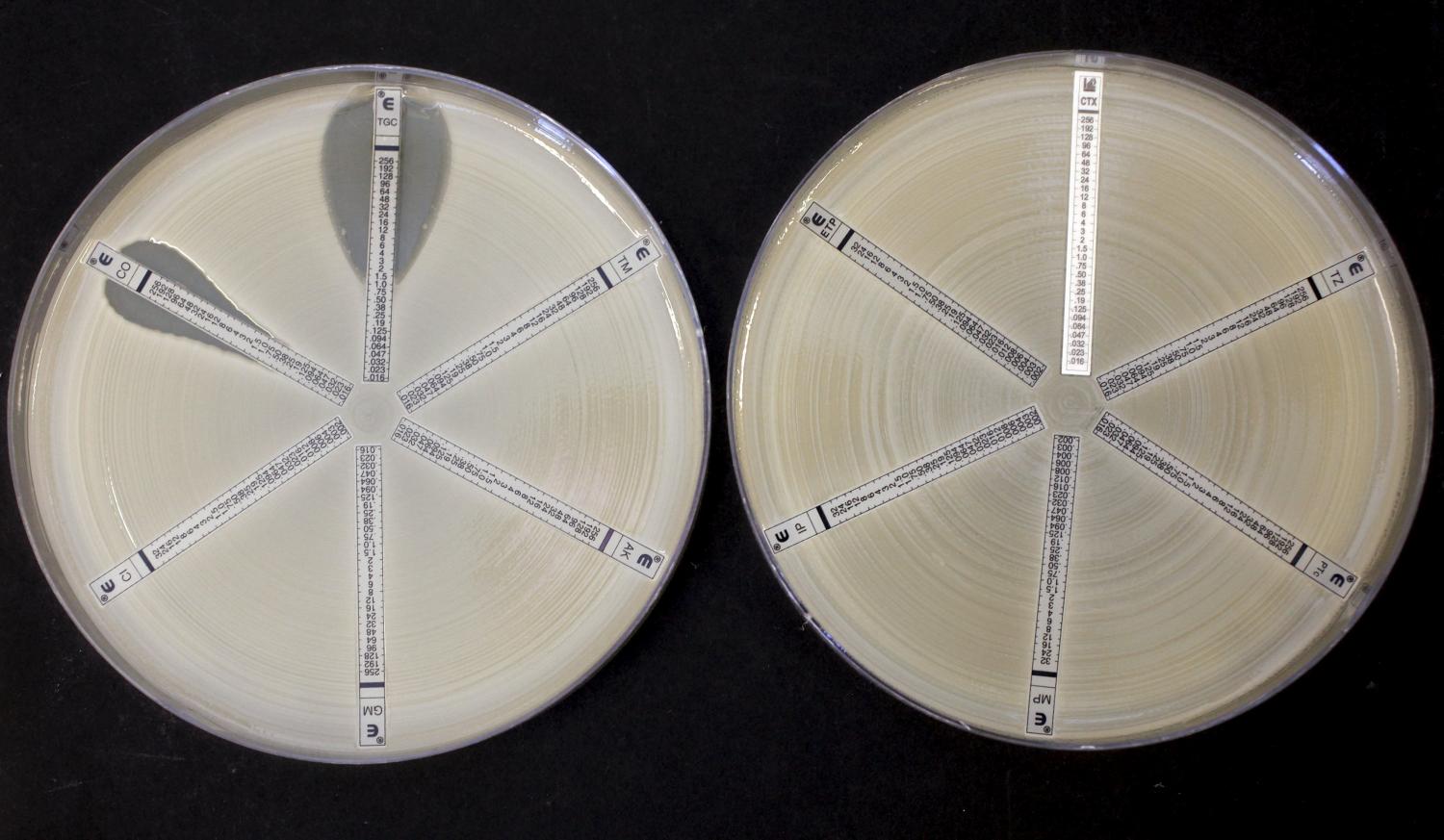
Antimicrobial resistance (AMR) might be known to consumers and patients simply as drug resistance. However, it is actually a looming threat to global health security which threatens to derail efforts to reach the 2030 Agenda for Sustainable Development goals.
Simply put, AMR develops when microbes -- bacteria, viruses, fungi and other parasites -- undergo genetic changes which renders it unaffected by antibiotics meant to kill them. The problem which needs to be highlighted is that AMR has rendered many drugs ineffective against many diseases.
Given its far-and-wide impact, in 2015 a global action plan to tackle the growing problem was endorsed at the 68th World Health Assembly. Since then, the World Health Organization has observed the World Antimicrobial Awareness Week between Nov 18-24 each year.
Since Alexander Fleming discovered the antibiotic penicillin in 1929, antimicrobials have saved millions of lives across the globe. But many of these medicines are now under threat of becoming ineffective due to AMR.
According to conservative estimates, AMR kills 700,000 people each year. However, based on WHO's latest estimation, the actual number could be much higher.
The Tuberculosis (TB) bacteria, for example, are becoming resistant to many antibiotics, fuelling cases of drug-resistant TB, which is more difficult and expensive to treat and recover from, and threatening the overall progress in containing the disease.
In Thailand, 1,400 cases of drug-resistant TB were found last year alone, according to the WHO's latest Global TB Report.
AMR is also threatening to roll back the progress Thailand, if not, the entire region, has made in combatting malaria.
Resistance to chloroquine, the drug that was commonly used to prevent and treat malaria about four decades ago, has been reported all across the Greater Mekong Sub-region, of which Thailand, Myanmar, Cambodia, Vietnam and Laos are a part of.
Now, experts fear cases may surge again, as there have been reports of artemisinin resistance too.
Thailand has made commendable progress in rolling out lifesaving antiretroviral therapy for people living with the Human Immunodeficiency Virus (HIV). But antiretrovirals are at risk of becoming less effective due to the emergence of drug-resistant HIV, Dr Ishwar Gilada, from the Governing Council of International AIDS Society (IAS) warned.
"The prevalence of drug-resistant fungal infections is increasing; and widespread resistance to ciprofloxacin, which is commonly used to treat urinary tract infections and pneumonia, has been reported. No wonder the WHO declared antimicrobial resistance as one of the top 10 global health threats" added Dr Gilada.
Though AMR is ultimately an evolutionary process, humans are contributing to its increased rate. WHO said factors such as poor infection control in clinical, veterinary, and food-producing settings, as well as poor access to clean water, sanitation and hygiene as the main drivers of AMR.
The use of poor-quality drugs and the irrational use of antibiotics not just among people, but livestock and agriculture.
In fact, a study found that while only 6.9% of Covid-19 patients it surveyed actually had a concurrent bacterial infection, 72% were prescribed antibiotics. Unfortunately, the adverse impact of such irrational use of antibiotics will only manifest in the future.
Not just humans
Humans are misusing antibiotics not only in the public health sector, but also in the agriculture and livestock sectors.
Sub-therapeutic doses of antibiotics are frequently used to promote growth in livestock and also as a preventive action against possible infection among animal herds. Citrus trees are regularly sprayed with antibiotics like streptomycin and tetracycline and antifungals are utilised by the flower industry to increase production. These are just some of the examples of how antimicrobials are being misused in livestock and agriculture.
Elizabeth Tayler, WHO Technical Lead in the global Tripartite Joint Secretariat for AMR warned that the more we use antimicrobials, the greater are the chances that resistance will develop.
Moreover, drug-resistant antimicrobials leak into the environment. Significant antibiotic residues have been found in effluents from intensively-farmed areas and hospitals -- all of which end up in rivers which are used by thousands to bathe and drink from, thus further increasing the spread of drug resistant diseases.
Can we afford to lose medicines?
While the call to accelerate the research and development of new treatments is rightly getting more attention, we simply cannot afford to lose drugs which we know work because of AMR.
WHO experts advocate efficient infection control and proper sanitation in all settings as key to controlling AMR. This will help to control the spread of infection, which in turn will reduce the use of antimicrobials.
Other mechanisms include regulations to ensure that antimicrobials are not sold over the counter and are prescribed only as needed.
The fight against AMR requires different sectors, from food, veterinary, human health, and environment protection, to work together under a "One Health" approach.
Without a coordinated multisectoral response across the entire spectrum, disease management will become more difficult and food security will be compromised.
Joseph Thomas who leads the World Health Organization (WHO)'s Antimicrobial Stewardship and Awareness Joseph Thomas said last week that we need more political commitment, and greater action at country, community, and individual levels, to stop indiscriminate use of antimicrobials and put in place strong infection control measures.
He urged the world to act fast, saying the cost of inaction has already become very high.
Let us all heed the call to spread awareness to stop resistance.
Shobha Shukla, is managing editor at Citizen News Service (CNS), an independent online journalism platform based in India, and coordinator of Asia Pacific Media Alliance for Health and Development. Bobby Ramakant is the Health Editor of CNS and recipient of World Health Organization World No Tobacco Day (WNTD) Award 2008.